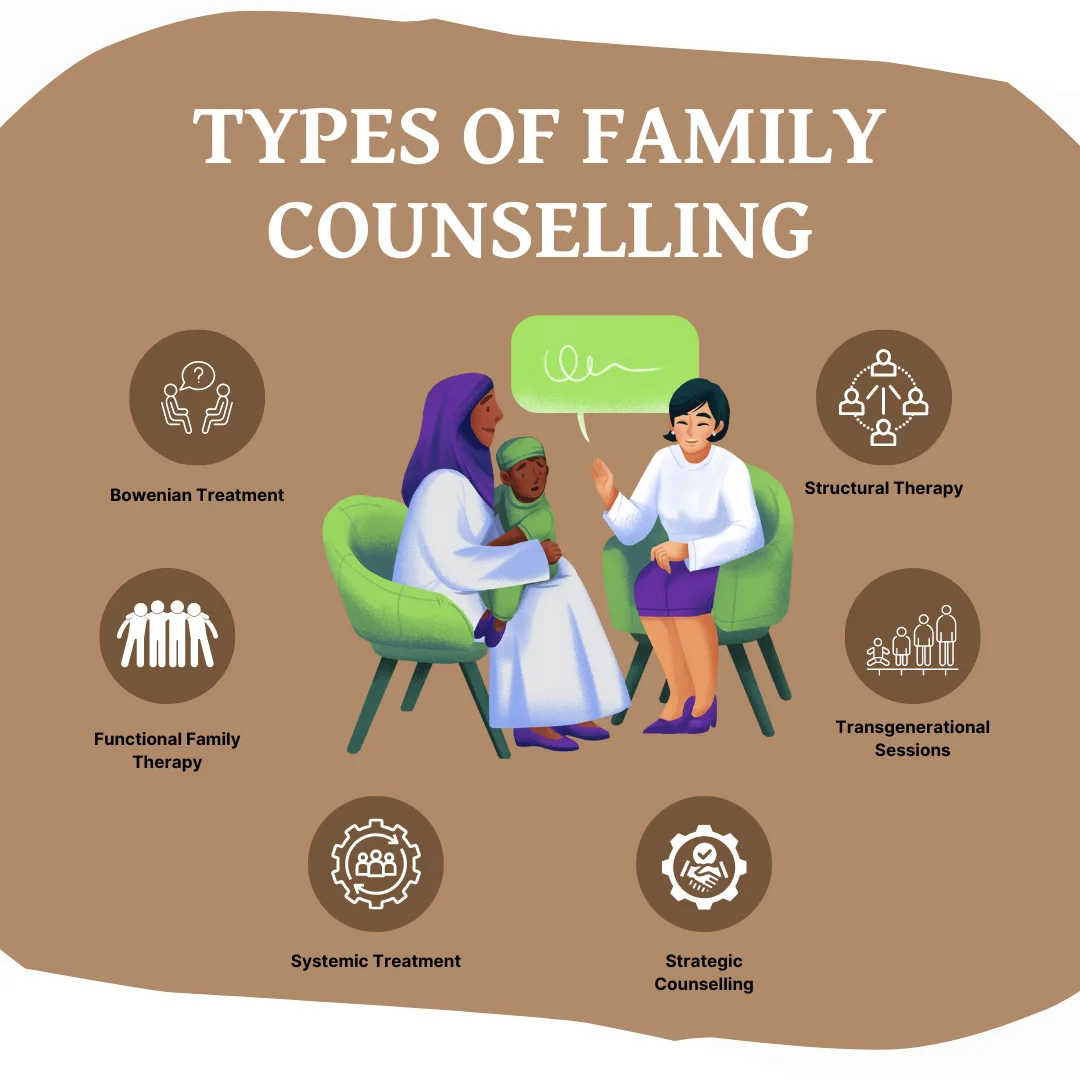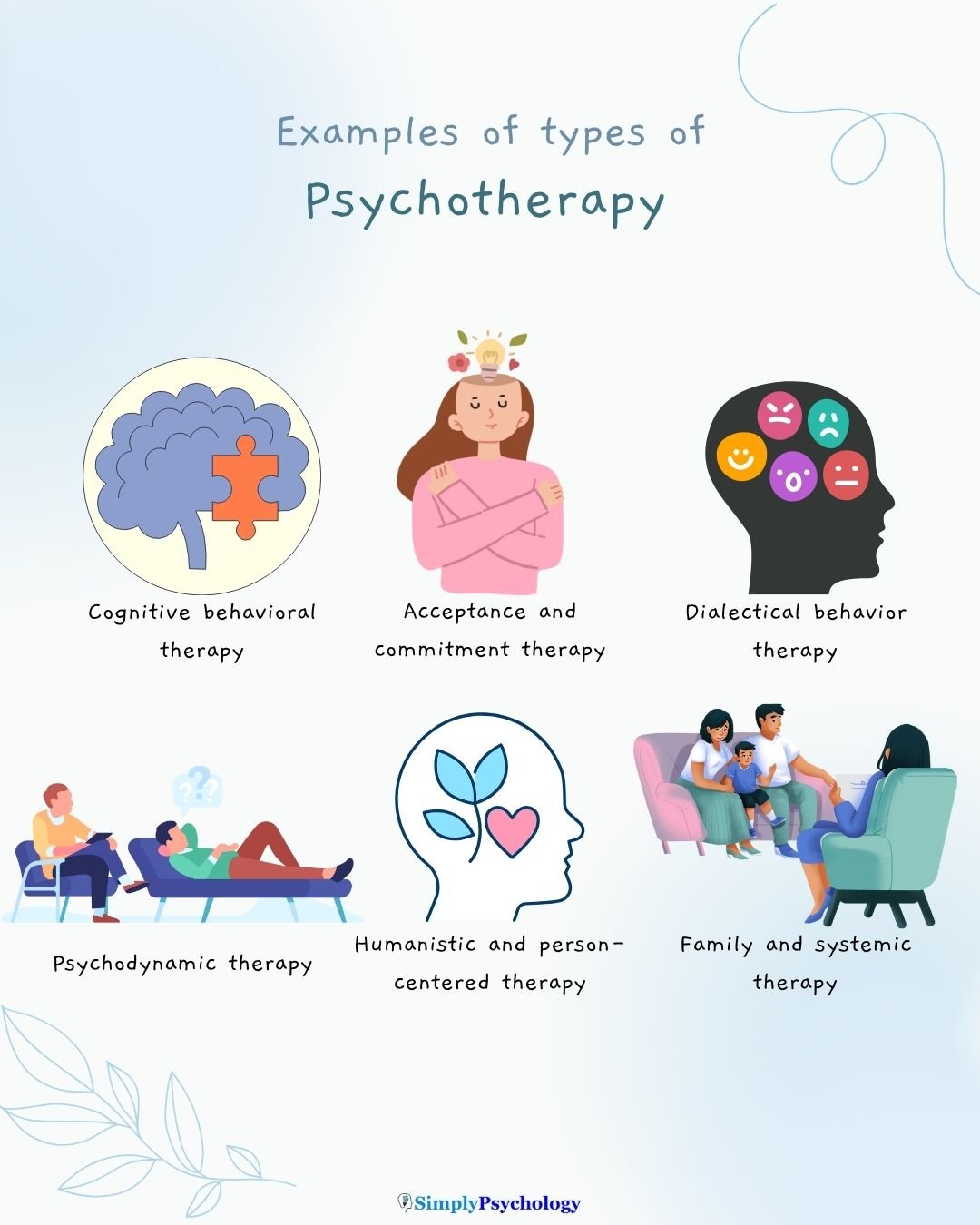The Impact of adhd counselling in Academic Success
Wiki Article
Checking out the Advantages of Virtual Therapy in Modern Mental Healthcare
The increase of virtual therapy marks a significant shift in mental healthcare. It offers boosted availability, permitting people from diverse backgrounds to seek aid without geographical restrictions. Adaptability in scheduling suits differing way of livings, while the comfort of home can foster visibility. The implications of these modifications expand beyond simple convenience. The progressing landscape of therapy raises essential inquiries about its long-lasting impacts on individual engagement and treatment end results.Improved Ease of access for All
Although traditional therapy typically presents obstacles such as geographical area and scheduling conflicts, virtual therapy significantly enhances availability for individuals looking for mental wellness support. By getting rid of the requirement for physical travel, virtual therapy permits clients from remote locations or those with flexibility difficulties to link with qualified experts. This mode of therapy can reach underserved populaces who may lack neighborhood psychological health and wellness sources, thus resolving disparities in access to care. In addition, virtual platforms can deal with varied demands, providing services in numerous languages and accommodating various cultural backgrounds. Customers can engage with a broader variety of professionals, offering them with alternatives that align with their details requirements and preferences. This raised accessibility promotes a much more inclusive atmosphere, permitting individuals to seek assistance without the stigma frequently related to in-person check outs. In general, virtual therapy represents a substantial development in making psychological health treatment more obtainable to all.Versatility in Organizing Sessions

As virtual therapy proceeds to get traction, its fundamental adaptability in organizing sessions proves to be a substantial advantage for several individuals. Unlike standard in-person therapy, virtual therapy enables customers to pick session times that best fit their personal and expert dedications. This flexibility fits those with requiring work timetables, family responsibilities, or various other dedications that can make participating in physical appointments challenging.
Customers can quickly reschedule or change their sessions as needed, lowering the stress linked with rigid visit systems. The schedule of various time slots throughout the week, including evenings and weekend breaks, better enhances access. This adaptability not only motivates uniformity present but likewise cultivates a greater commitment to the healing procedure. Eventually, the adaptability in scheduling sessions represents a transformative shift in mental health treatment, encouraging individuals to prioritize their well-being without giving up various other elements of their lives.
Convenience of a Familiar Setting
The comfort of a familiar atmosphere substantially enhances the effectiveness of virtual therapy for numerous customers. Participating in therapy from the safety of their own homes enables individuals to feel more secure, minimizing anxiousness that might accompany typical in-person sessions. This experience can help with open interaction, allowing clients to express their thoughts and feelings extra easily.The presence of personal things and the ability to regulate their surroundings can add to a sense of safety and security and relaxation. Customers usually report that remaining in a comfortable area allows them to concentrate extra on the restorative process instead of the establishing itself.
In addition, the casual nature of virtual sessions can help liquify obstacles that may exist in a typical workplace atmosphere, fostering a much deeper link with specialists. Generally, the comfort of acquainted surroundings plays an essential duty in enhancing the therapeutic experience and performance for several people seeking mental health support.
Wider Series Of Therapeutic Alternatives
A broader range of restorative alternatives comes to be offered via virtual therapy, enabling customers to gain access to various modalities that might not be viable in traditional setups. This flexibility allows people to check out varied methods such as cognitive-behavioral therapy, mindfulness practices, art therapy, and even specialized interventions like trauma-informed care or dialectical behavior modification.Customers can pick from a wider range of specialists, including those who specialize in niche areas or certain populations, improving the possibility of discovering an ideal suit. Virtual platforms typically give accessibility to team therapy sessions, assistance communities, and workshops that may be geographically not available or else.
This range equips customers to take part in their healing process according to their unique choices and demands, possibly increasing motivation and commitment to treatment. As an outcome, the landscape of psychological health and wellness care becomes much more inclusive and versatile, dealing with a wider range of individual experiences and challenges.
Decreased Stigma Bordering Therapy
Accessing therapy via virtual platforms adds to a considerable reduction in the stigma traditionally related to psychological healthcare. By offering a very discreet and personal environment, virtual therapy allows individuals to seek aid without the worry of being evaluated or identified. This privacy interest those who may or else be reluctant to seek in-person therapy due to social assumptions surrounding mental wellness.As the prevalence of virtual therapy boosts, it normalizes the conversation around psychological wellness, making it a more appropriate component of daily life. Individuals usually feel more comfy reviewing their experiences on-line, promoting visibility and reducing feelings of isolation. The accessibility of these services additionally encourages a broader market to engage with psychological health sources, cultivating a culture of assistance rather than shame. Ultimately, the rise of virtual therapy plays an important function in improving attitudes towards seeking help, adding to a much more approving society pertaining to psychological health difficulties.
Cost-Effectiveness and Price

Lowered Session Costs
Lots of individuals looking for psychological health support locate that virtual therapy significantly minimizes session prices compared to typical in-person alternatives. The elimination of traveling expenditures and time off work often contributes to total savings. Additionally, many virtual therapists offer affordable prices due to reduced above expenses related to maintaining a physical workplace. This change in expenditure allows clients to gain access to top quality psychological health and wellness services without the monetary strain that might feature traditional therapy. For several, this cost enables much more frequent sessions, which can enhance therapy outcomes. As an outcome, virtual therapy not only democratizes access to psychological healthcare but also supplies a sustainable monetary model that aligns with clients' spending plans, making mental health and wellness support a lot more attainable for a broader target market.Increased Gain Access To Alternatives
While standard therapy typically presents logistical obstacles, virtual therapy greatly increases accessibility choices for individuals seeking psychological healthcare. By eliminating the need for traveling and permitting versatile scheduling, virtual therapy suits varied way of lives and commitments. This accessibility is specifically helpful for those in remote locations or with flexibility obstacles. Furthermore, the cost-effectiveness of virtual therapy reduces economic pressure, making psychological health and wellness solutions a lot more obtainable. Many platforms supply tiered rates or sliding range fees, promoting price. Insurance provider increasingly acknowledge virtual therapy, more boosting its monetary ease of access. On the whole, virtual therapy not only widens the range of that can obtain treatment however additionally addresses economic barriers, making psychological health support a lot more comprehensive and attainable for all.Enhanced Connection of Treatment
Enhanced connection of care becomes a substantial advantage of virtual therapy in modern-day mental healthcare. This strategy permits clients to maintain consistent communication with their therapists, relationship therapy no matter geographical barriers or organizing problems. low cost therapy. The adaptability of virtual sessions fosters regular check-ins, which are necessary for keeping an eye on progress and adjusting therapy prepares as essentialAdditionally, electronic wellness documents and telehealth systems facilitate seamless information sharing among treatment suppliers. This interconnectedness ensures that all experts associated with a patient's care are updated on treatment advancements, causing even more worked with and reliable treatments.
Clients typically experience lowered anxiety and increased engagement due to the benefit of accessing therapy from familiar environments. Such ease of access improves adherence to treatment regimens, inevitably enhancing outcomes - adhd counselling. To summarize, virtual therapy not just bridges spaces in mental health services yet additionally fortifies the continuity of treatment, a crucial part of successful healing connections
Regularly Asked Questions
How Does Virtual Therapy Ensure Discretion and Personal Privacy for Clients?
The current inquiry addresses the measures virtual therapy utilizes to shield client discretion. Utilizing encrypted systems, safe and secure logins, and compliance with regulations like HIPAA, virtual therapy guarantees that sensitive info stays exclusive and hard to reach to unauthorized people.Can I Switch Over Therapists Easily in Virtual Therapy?
Switching specialists in virtual therapy is usually uncomplicated. Customers can communicate their desire for a modification through the platform, enabling versatility in locating a better match without the logistical difficulties of in-person consultations.What Technology Do I Required for Virtual Therapy Procedure?
To join virtual therapy sessions, a specific typically requires a reputable internet link, a computer system or smart device with a video camera and microphone, and accessibility to a protected video clip conferencing system specified by their specialist.
Are Virtual Therapy Sessions as Effective as In-Person Procedure?
Current researches indicate that virtual therapy sessions can be equally effective as in-person sessions, relying on the individual's choices and conditions. Elements such as convenience and access may enhance the total restorative experience for some clients.What Should I Do if I Experience Technical Issues Throughout a Session?
If technical problems arise throughout a session, one ought to smoothly communicate the trouble to the therapist, effort to reconnect, or switch to a backup method. Perseverance and flexibility are necessary in handling these disruptions.Report this wiki page